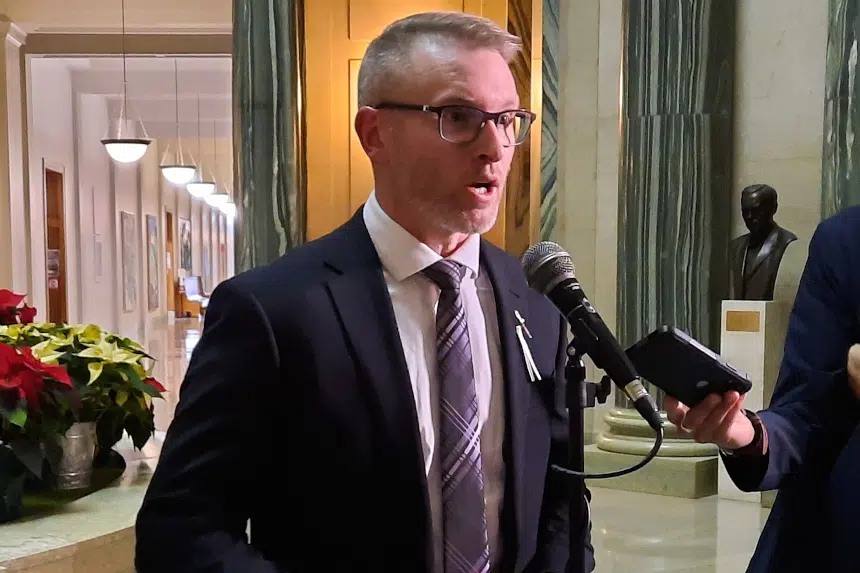While B.C. delves into allowing the possession of small amounts of hard drugs, Saskatchewan’s government isn’t interested in following suit.
“We’re focused as a government here on treatment and recovery and a number of additional investments we’ve made into harm reduction along the way as part of that. But ultimately we want to make sure that we are providing people with access and avenues to long-term treatment and recovery,” Everett Hindley, Saskatchewan’s minister for mental health and addictions, said Tuesday.
Hindley said decriminalization is just not on the province’s radar right now; it’s more focused on things like expanding treatment beds.
On Tuesday, B.C. decriminalized possession of 2.5 grams or less of opioids, cocaine, methamphetamine and MDMA, but selling the drugs remains illegal. It’s in an effort to slow down the growing number of drug overdose deaths.
Police chiefs in Saskatchewan will be watching B.C. closely.
Rick Bourassa, chief of the Moose Jaw Police Service and president of the Saskatchewan Association of Chiefs of Police, said there have been discussions in Saskatchewan and across the country about decriminalization.
“The chiefs not only here in Saskatchewan but across the country have supported the concept in principle of decriminalization. However, we have been very clear that that needs to be accompanied by all the appropriate supports and resources in place to deal with the consequences of decriminalization,” said Bourassa.
There has also been a rise in drug overdose deaths in Saskatchewan — setting a record in each of the past three years — and Bourassa said there has been a call for more resources to combat that problem, a call which he said police echo.
He called it a complex situation that has many consequences.
If decriminalization was discussed in Saskatchewan, Bourassa believes there would likely need to be more resources put in place.
There have been informal conversations for years in Saskatchewan but nothing formal, Bourassa said. He said he would welcome participating in any discussions if they did come up.
Currently, being caught by police with a small amount of drugs in Saskatchewan won’t necessarily net a person a criminal charge anyway. Bourassa said that for years, police in the province have been more focused on dealing with the drug supply, but in the case of the Moose Jaw Police Service, officers haven’t been told specifically to not lay charges.
“Individual police officers exercise discretion when they’re engaged with people in the community and many officers may be choosing not to proceed with charges and to proceed in other ways, and we certainly support that discretion amongst our members,” said Bourassa.
The chief said there are multiple other responses an officer could go to like alternative measures programs or giving a police warning.
Regina’s police chief, Evan Bray, has said multiple times that his officers are often not pursuing arrests for simple possession of small amounts. The police did put together a report about decriminalization in Regina that said it should remain an option, but the report suggested no decision will be made anytime soon.
Bourassa said it’s an extremely complicated problem.
“It’s one of those we refer to as sticky-wicket problems that have just multiple layers and complexity and really involves the participation of a broad spectrum of agencies to make successful,” said Bourassa.
He said police chiefs are watching the B.C. process and wishing it all the success in the world.
The decriminalization project in that province will go for three years unless it’s decided to end it sooner.











